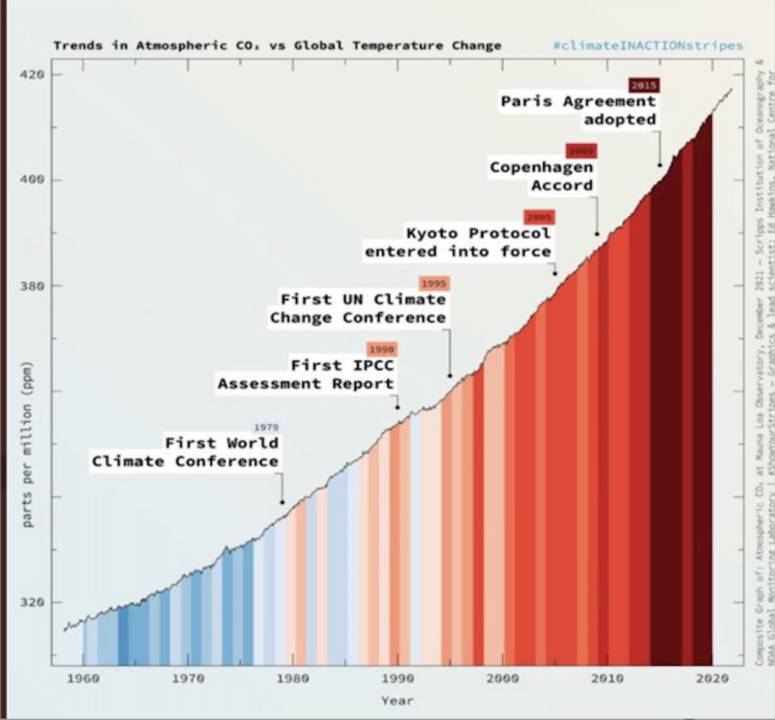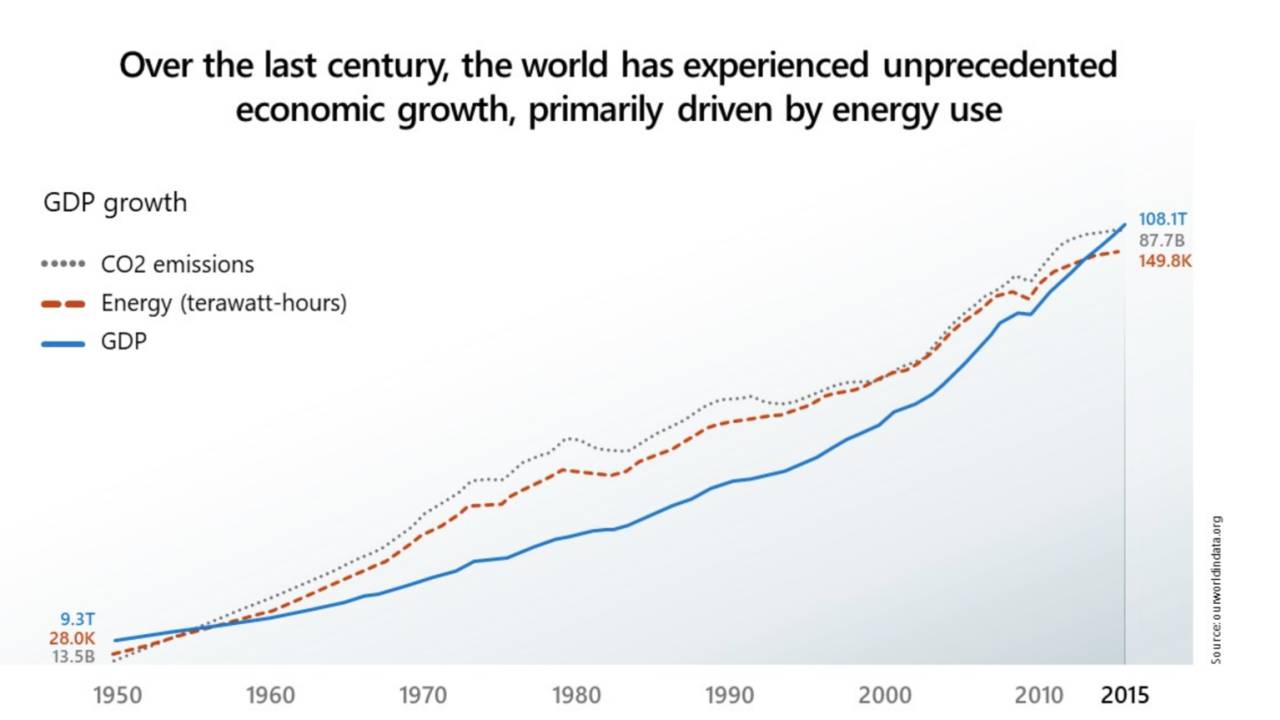It is challenging to act on climate. Our natural tenancy is to act only on what we see here and now. It is difficult for us humans to act on a threat that we know is there, but is kind of far away and besides: “I am too small of making the change”, and “it is not us but them” mentality is everywhere. We are looking around us and expecting others to do it for us. So how come after endless agreements, COP’s, meetings, studies, articles, and discussions, the CO2 level keeps rising?:
Here are a few observations as to why decarbonization is not happening.
1. No decisive leadership
We are looking for leadership, but they are looking back at us, just fearing our anger and demands.
By definition, leaders are acting on 4 years intervals (at least in the democratic world), while climate is a problem of generations.
By definition, leaders are acting on 4 years intervals (at least in the democratic world), while climate is a problem of generations. Leaders are also heaving too many agendas to serve hence acting in opposite directions. I was so excited to see President Joe Biden rejoins the Paris climate accord in the first move to tackle global warming, just to discover that he also outpaces-trump-issuing-drilling permits on public lands.
This is not to judge or criticize President Biden, just a relevant example – unfortunately, there are so many of them.
2. GDP and profitability
The race for profitability, a single bottom line, is on, and the number one enemy of CO2 reduction is the quarterly reports. The craving for a GDP increase is the world’s economic engine and the main reason resisting the change. For over a century, the holy grail, their mission was shareholders returns and profitability, not a return on sustainability.

There is an obvious direct correlation between GDP growth, energy consumption, and increased CO2 emissions.
3. The perception that climate action means a reduction in GDP and profitability.
The logical question is, do we need to reduce the GDP or slow down the business to reduce global emissions? At least in the short term, it is the dilemma that many corporates (and countries) are facing.
“Climate leaders can attract and retain better talent, realize higher growth, save costs, avoid regulatory risk, access cheaper capital, and create new sources of value for customers. Done well, this will translate to higher shareholder returns and a sustainable source of competitive advantage.”
Corporates are being pressured to act, and many do. But, working on sustainability is not natural for them as most live in that sustainability is a cost centre rather than an opportunity to make more profit. In cooperation with WEF, BCG just came up with an exciting study
concluding that: “Climate leaders can attract and retain better talent, realize higher growth, save costs, avoid regulatory risk, access cheaper capital and create new sources of value for customers. Done well, this will translate to higher shareholder returns and a sustainable source of competitive advantage.” The study further suggests that, on average, 50% emissions reduction of Scope 1, and 2 can be made at net-zero cost.
4. The rock climbing approach
Yes, the climate is a challenge for generations, but this doesn’t mean climate goals should continue to be pushed into the far future. We keep pushing the promises for the long term, now it is 2050 (India is looking at 2070), at the best 2030. But where would be the world leaders of today in these years? Who will take responsibility?
I recently heard a mountain climber describing the journey to the top and he said: “all I am thinking about is where am I am now, and what is my next step going to be. I am not thinking about getting to the top”.

It feels like we need to adopt more of these incremental steps forward. Can each one of us and our companies reduce our carbon footprint by 5% – 10% during the next year? next month? next week? tomorrow? and do so again, in a sustainable way, until we will reach our common goal?
5. The scope 3 challenge
Most of us are familiar with the three corporates scopes of emissions definition, mainly:
Scope 1: Direct emissions
Scope 2: Indirect emissions from energy purchased and used, and
Scope 3: Other indirect emissions
Looking back at the study of BCG, one of the conclusions was that 50% emissions reduction of Scope 1, and 2 can be made at net-zero cost. These are, of course, remarkable findings. Scope 3 is far more complicated as it is also more scattered. It comprises both inbound and outbound activities that corporates do not always have direct access to influence. They need a new way to measure and influence the decarbonization of these activities. On this, I will write in the next articles.
Microsoft’s carbon footprint is 16 million tons, of which 75%, 12 million tons are coming from scope 3
Scope 3 varies from industry to industry, and in some cases, it reaches 75% and more, of the corporate carbon footprint.
In a blog published a year ago by Brad Smith President and Vice-Chair at Microsoft, he explains that Microsoft’s carbon footprint is 16 million tons, of which 75%, 12 million tons are coming from scope 3.
And yet, a place for optimism
Yes, it is a major challenge to act on decarbonization, but it also brings many opportunities. It is our role, as startups to help make the change, and naturally, I will end in this high note from Larry Fink the CEO of BlackRock:
“The next 1,000 unicorns won’t be search engines or social media companies, they’ll be sustainable, scalable innovators – startups that help the world decarbonize and make the energy transition affordable for all consumers,”
“Sustainability and purpose should act as ‘north star’ for businesses”
Thank you!
Gilad Regev is the CEO and co-founder of Kora sustainability.
Kora rewards individuals and entities for decarbonization




